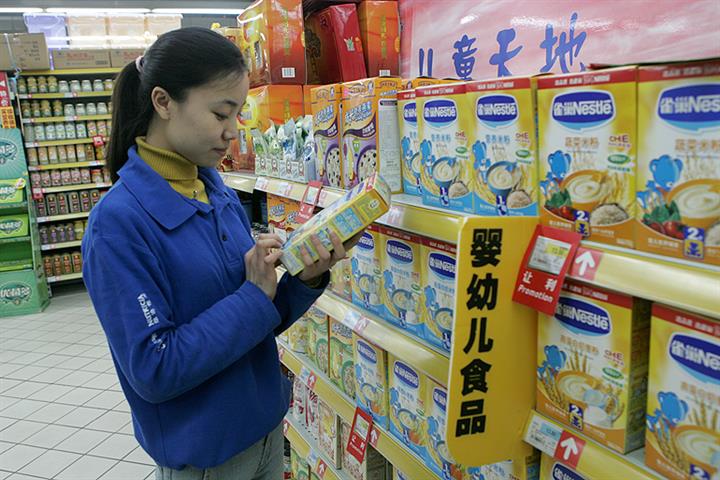 Fewer Babies, More Seniors Points to Costlier Parenting, Smarter Elderly Care in China
Fewer Babies, More Seniors Points to Costlier Parenting, Smarter Elderly Care in China(Yicai Global) May 12 -- China's decreasing birth rate and the quickly aging society should bring opportunities in elderly care while parents are expected to be spending more money on their kids.
The trend touches both ends of the human life span. China reported 12 million new births last year, the fourth consecutive year of slowing growth, Ning Jizhe, director of the National Bureau of Statistics, said yesterday.
Meanwhile, the number of Chinese people aged 60 and above was 264 million in 2020, making up 18.7 percent of all, rising from the 13.3 percent recorded in 2010, according to the latest population census. The number of those aged 65 and above accounted for more than 70 percent of the total.
The changing demographics should hit the market gradually.
Expensive Parenting
Parents are predicted to be generous with their kids. The cost of raising a child has increased by about 25 percent from a year ago for the users of a Chinese social media application for parents, said an employee at the company.
The country's maternity market is expected to grow to CNY5.9 trillion (USD916.9 billion) by 2023, according to a report released by Euromonitor.
New parents also have more options of how to splurge. Sales of smart hardware such as tutoring computer iFlytek X2 Pro, Dali table lamp, and service robots have exploded on Tmall.
Tmall's maternal and child segment has over 300 million users, and nearly 5,000 new brands were added last year, Li Sa, general manager of Tmall's maternal business, told Yicai Global.
Parents may also pay more for education. When those born in the 1980s and 1990s raise their first children, they are expected to be willing to spend more on their kids' tuition than the previous generation.
The overall trend of K12 online education is positive, said Li Yue, education analyst at Analysys. As new births decline, the market should rapidly adjust, Li added.
But that decrease should take a moment to disrupt the K12 sector as the latest population census showed that the share of those aged between 0 and 14 years rose to 18 percent of the total in 2020, up from the 16.65 percent logged in 2010.
Education is not limited to kids. In the future, the online adult and senior education sector, which is still fragmented, should become huge, said Li.
New Opportunities in Elderly Care
China is rapidly entering a deeply aging society, which brings unprecedented challenges to the fields of medical services, chronic disease management, and senior care, and this challenge keeps on becoming bigger, said He Lei, vice president of Wenjing Technology.
Intelligent solutions based on the Internet of Things, artificial intelligence, and Big Data will inevitably form an important trend for elderly care in the future, Fu added.
Aging is a trillion-yuan-level market, which should involve digitization, said Guo Wei, chief executive of Joyowo.Com.
As the demographics change and people's life expectancy becomes longer, the demand for specialized services for the elderly should expand faster, said Han Mengying, senior analyst at the Analysys Research Center.
Editor: Emmi Laine, Xiao Yi